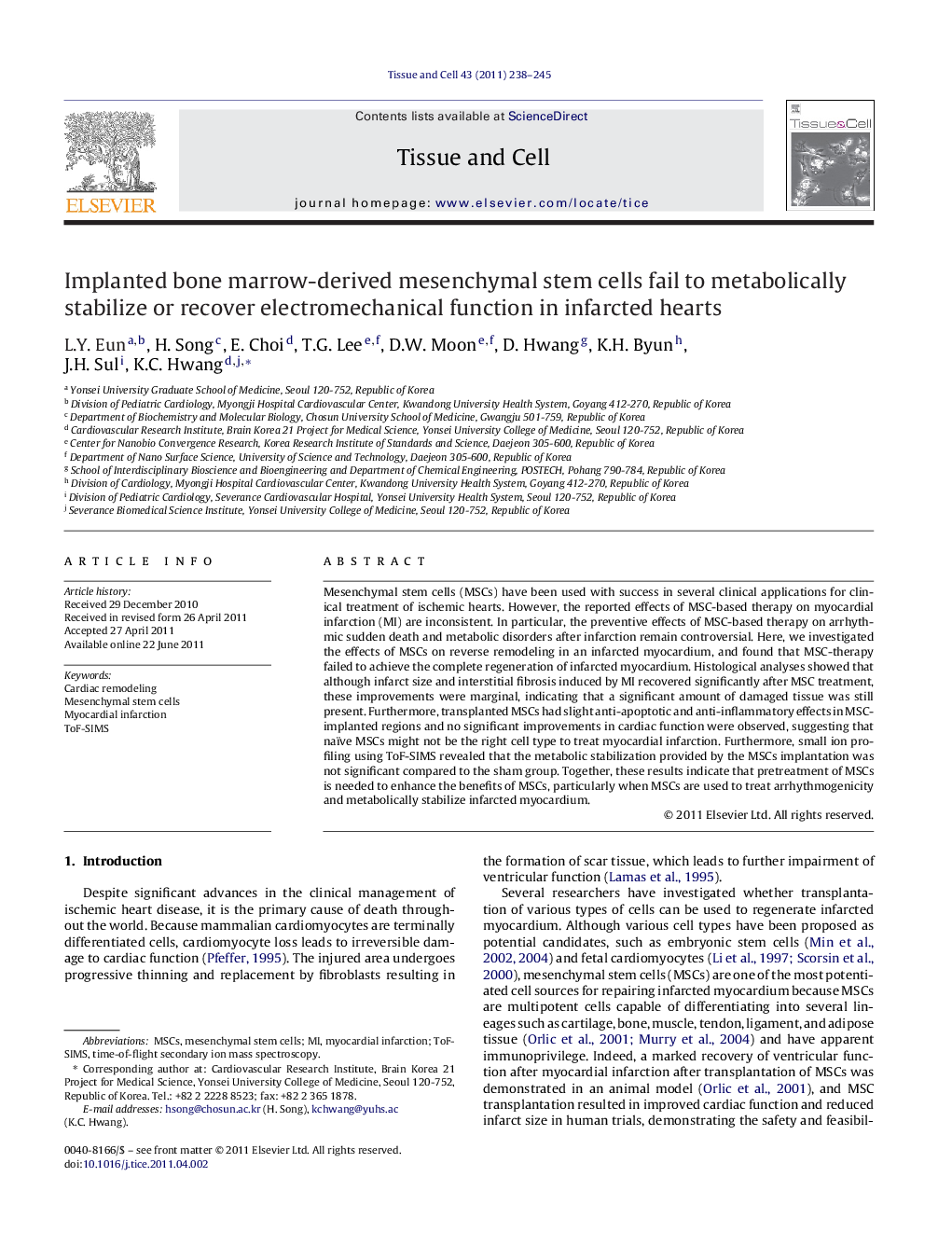| Article ID | Journal | Published Year | Pages | File Type |
|---|---|---|---|---|
| 2203938 | Tissue and Cell | 2011 | 8 Pages |
Mesenchymal stem cells (MSCs) have been used with success in several clinical applications for clinical treatment of ischemic hearts. However, the reported effects of MSC-based therapy on myocardial infarction (MI) are inconsistent. In particular, the preventive effects of MSC-based therapy on arrhythmic sudden death and metabolic disorders after infarction remain controversial. Here, we investigated the effects of MSCs on reverse remodeling in an infarcted myocardium, and found that MSC-therapy failed to achieve the complete regeneration of infarcted myocardium. Histological analyses showed that although infarct size and interstitial fibrosis induced by MI recovered significantly after MSC treatment, these improvements were marginal, indicating that a significant amount of damaged tissue was still present. Furthermore, transplanted MSCs had slight anti-apoptotic and anti-inflammatory effects in MSC-implanted regions and no significant improvements in cardiac function were observed, suggesting that naïve MSCs might not be the right cell type to treat myocardial infarction. Furthermore, small ion profiling using ToF-SIMS revealed that the metabolic stabilization provided by the MSCs implantation was not significant compared to the sham group. Together, these results indicate that pretreatment of MSCs is needed to enhance the benefits of MSCs, particularly when MSCs are used to treat arrhythmogenicity and metabolically stabilize infarcted myocardium.
